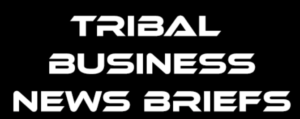
- Details
- By Native News Online Staff
Agriculture
The Oglala Sioux Tribe will vote this week on an initiative to legalize medical and recreational marijuana on South Dakota's Pine Ridge Reservation, according to a report by the Associated Press.
The state of South Dakota and neighboring states Nebraska and Wyoming have not legalized marijuana, creating a potential economic development opportunity for the Oglala Sioux Tribe. If the tribe approves the measure, the Oglala Sioux Tribe would become the only American Indian tribe to sell cannabis in a state where it is illegal.
Tribal Gaming
The Poarch Creek Indians announced a plan to open two new casinos in Alabama, according to media reports. The tribe said it plans to funnel $1 billion into the new venues, if approved. The state of Alabama is considering the proposal.
Health Care
Two Feathers Native American Family Services became the first Native American organizational provider of specialty mental health services in Humboldt County, Calif. Two Feathers will provide mental health, therapeutic behavioral and intensive home-based services to Medi-Cal eligible children in Humboldt County through 2021, according to a report. Services will be based on a client’s needs and may include crisis intervention, group therapy and individual and family therapy. Two Feathers is a tribally chartered nonprofit of the Big Lagoon Rancheria.
Retail
Washington’s state Senate approved House Bill 2803, which could clear the way for the Tulalip Tribes to begin sharing sales tax collected from non-tribal businesses on their reservations. The bill will allow Gov. Jay Inslee to negotiate compacts with tribes that would split the sales tax between the tribe and the state. Inslee is expected to sign the bill.
The Fort Mojave Indian Tribe broke ground on a new convenience store and gas station in Mohave Valley, according to a press release. The 5,750-square foot facility will have eight fueling positions as well as snacks, beverages and food options available. It will also include a smoke shop and a gaming area with up to 15 slot machines.
Economic Development
Sean McCabe (Navajo) and a team of experienced professionals have launched McCabe Consulting, LLC to provide economic development and fiscal management strategy to tribes. McCabe brings two decades of experience in accounting, economic development and executive positions for tribal governments and organizations. Partner Juan Massey 20 years of economic and regulatory policy work and governmental relations experience, serving as division director for the New Mexico Economic Development Department and history of working with tribal communities.
Tribal executives Christy Jackson and Randy Soulier have formed Eagle Vision Solutions, a Wisconsin-based firm that brings 35 years of marketing, operations, and business development experience to clients. The firm will offer growth services including strategic marketing and public relations, as well as operational performance services such as policy, communication, service, leadership and coaching.
Executives
The Alaska Peninsula Corporation announced Brad Angasan has been appointed as its president. Angasan has been with APC for nearly 15 years and has served in several roles and capacities. Originally from South Naknek, Brad is an APC descendent-shareholder and represents the next generation of Native leaders at APC. In addition to corporate governance Brad oversees government & business relations and continues to oversee development of APC’s 400,000 acres of land assets throughout the Bristol Bay region.
More Stories Like This
American Basketball Association Announces Native ABA InitiativeFour Winds South Bend Upgrades to Class III Gaming Casino
Native News Online Wins Two Awards from Native American Journalists Association
Wahlberg Brothers Are a Big Hit at Indian Gaming Tradeshow and Convention in Las Vegas
Native Gro Offers Tribes a ‘One-Stop Shop’ for Entering the Cannabis Industry
Help us defend tribal sovereignty.
At Native News Online, our mission is rooted in telling the stories that strengthen sovereignty and uplift Indigenous voices — not just at year’s end, but every single day.
Because of your generosity last year, we were able to keep our reporters on the ground in tribal communities, at national gatherings and in the halls of Congress — covering the issues that matter most to Indian Country: sovereignty, culture, education, health and economic opportunity.
That support sustained us through a tough year in 2025. Now, as we look to the year ahead, we need your help right now to ensure warrior journalism remains strong — reporting that defends tribal sovereignty, amplifies Native truth, and holds power accountable.
 The stakes couldn't be higher. Your support keeps Native voices heard, Native stories told and Native sovereignty defended.
The stakes couldn't be higher. Your support keeps Native voices heard, Native stories told and Native sovereignty defended.
Stand with Warrior Journalism today.
Levi Rickert (Potawatomi), Editor & Publisher

